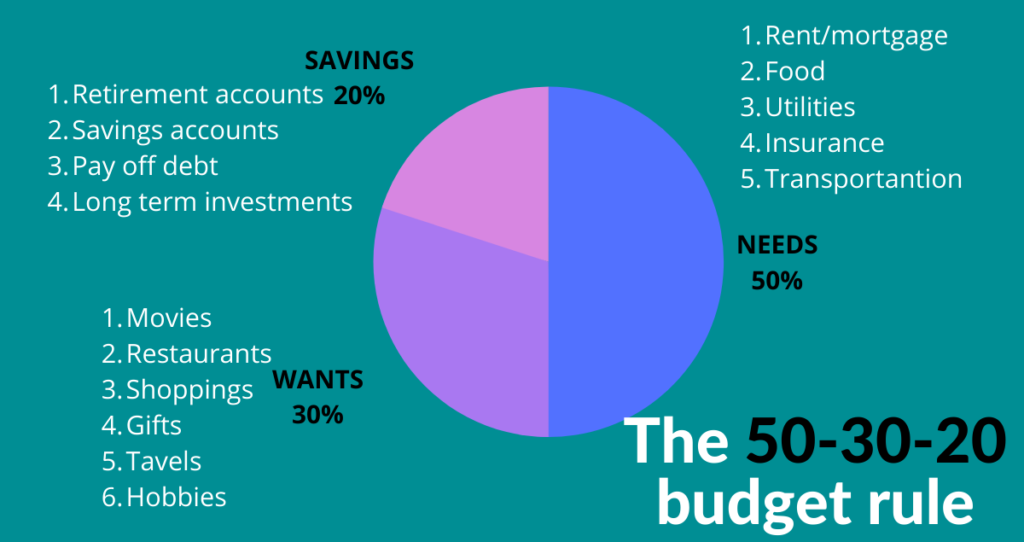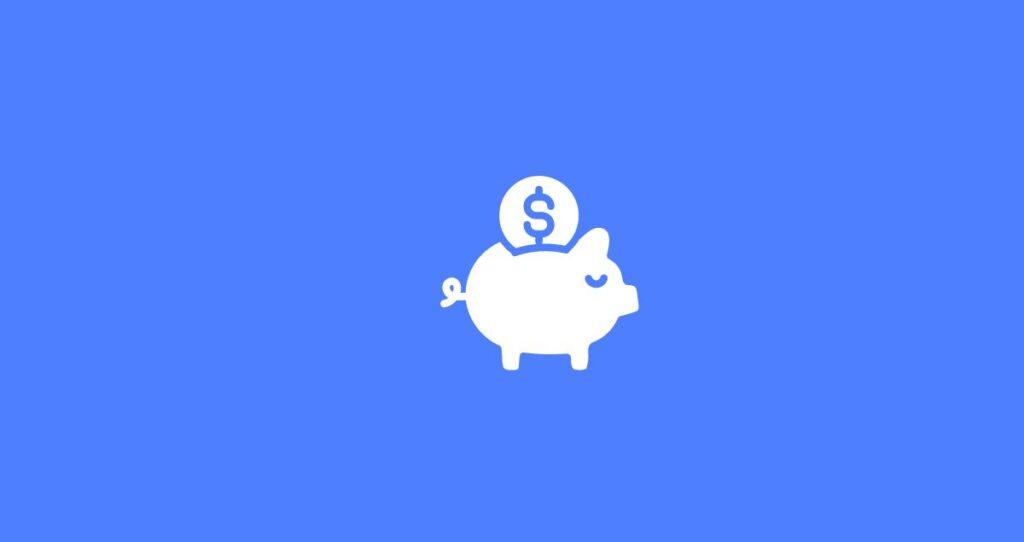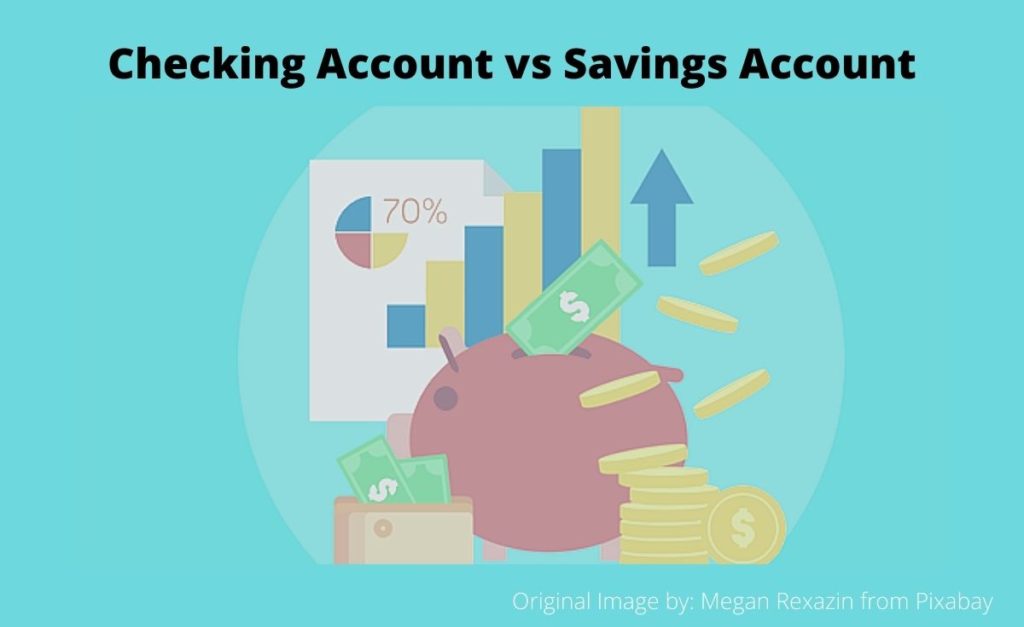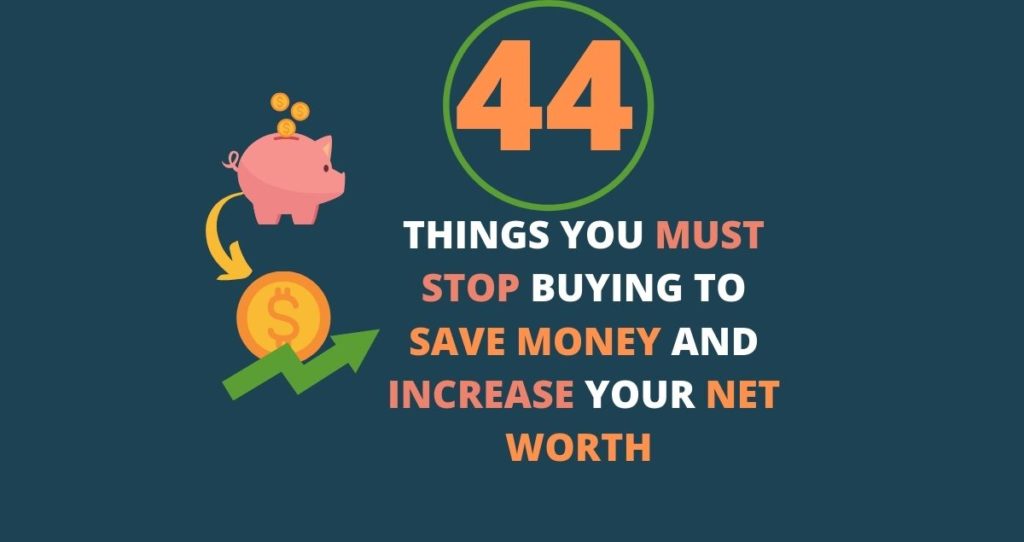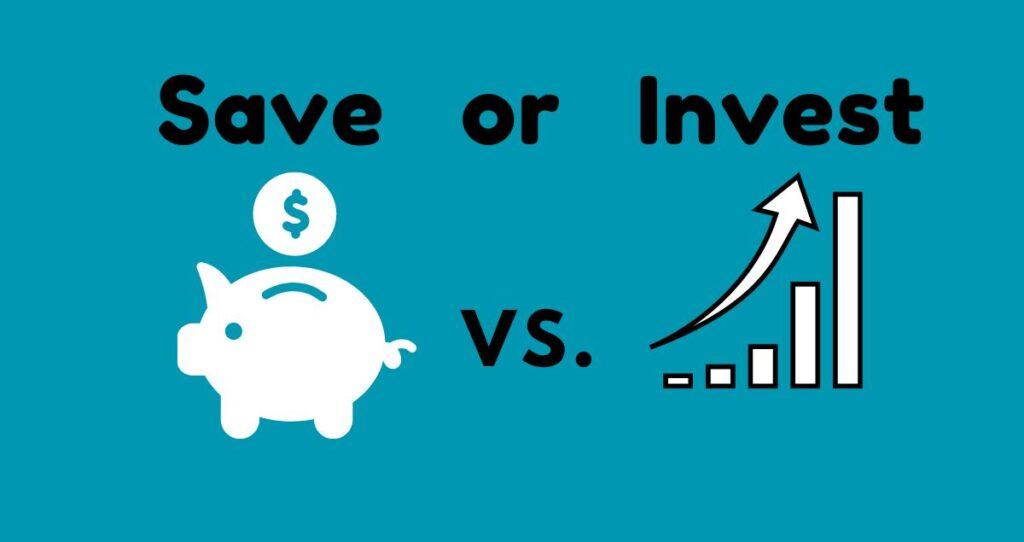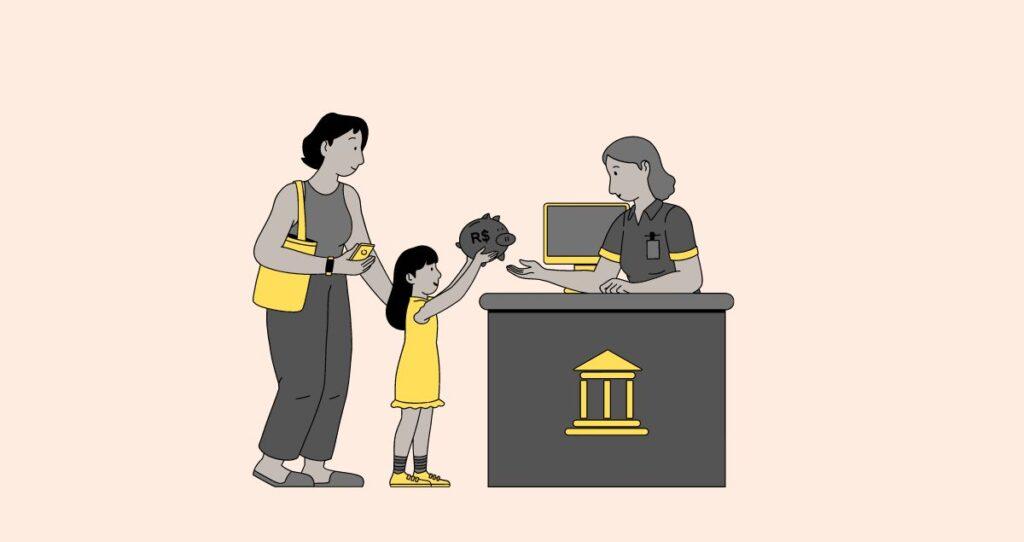Are you stressed out due to a never-ending cycle of money problems and don’t know how to improve your life? If you suck at managing your money and always running low on cash, then this article is for you. The truth is that being good with money doesn’t have to be complicated. You also don’t need higher education to manage your money.
To be good with money, you need to start making intentional decisions with money, have financial goals, and manage your money in ways that align with those financial goals. In this article, I will share the 10 best tips to be good with money, take control of your situation, and improve your life.
So, let’s get started.
What does being blood with money mean?
Being good with money means being able to make financial plans ahead of time and making intentional decisions with your money. This means having financial goals and making money decisions that allow you to achieve these goals. You are good with your money when you understand how much you make, where you spend it, and what you can save in your future.
For example, if you plan to buy a car, save for retirement, or buy a house, you must ensure enough money is saved for these financial goals. Again, money management is all about strategic planning and always planning for the future. People who are good with money also learn continuously, allowing them to make educated financial decisions such as avoiding bad debt.
Here are simple tips to be good with money.
1. Have the right mental attitude toward money
You must first have the right money mindset to be good with money. This is because being good with money requires you to make intentional financial decisions, which usually starts with viewing money as your ally instead of an enemy. Some people think that money is the root of all evil. Others blame education for their financial failures, etc.
Here are examples of a few poor mindsets toward money you should avoid.
- Money is the root of all evil
- I don’t need to save because I don’t make enough
- Only the rich can save
- Money does not buy happiness
- The rich steal our money
- The government still our money
- Being rich makes you greedy
- Shopping makes me happy
- I will start saving and investing when I start making more money
- I don’t need to make more money
- Investing is too risky
- Going broke to impress others.
These are just a few examples of bad attitudes toward money which you must avoid if you want to become good with money. All you need is to have the right mindset toward money. Even if you don’t want to be rich, you can register in your head that money is the root of all evil or that rich people are greedy.
A positive and growth mindset is best for managing money and improving your life. For example, instead of saying that investing is risky, ask yourself how to invest money without losing it. If you are one of those, who go broke to impress their friends, ask yourself how you can invest the money and earn enough passive income to help you buy the car or home of your dreams. It is all about changing your attitude toward money, which helps you view money as good for improving your life rather than being a destructive force.
2. Understand your relationship with money
To indeed be good with money, it’s essential to understand your relationship with it. What do you think about money? Do you see it as a tool to help you achieve your goals, or do you view it as a source of stress and anxiety? Are you one who can’t wait to spend the next paycheck? What is the first thing that comes to mind when someone mentions money? Take some time to reflect on your attitudes toward money and how it may impact your financial decisions.
3. Track your expenses through budgeting
One way to better understand your relationship with money and manage it well is to track your expenses through budgeting. If there is any tool out there to help you be good with money, it is a budget. Being good with money requires understanding how to utilize it once it reaches your hands. Knowing what you buy, why you buy it, and the decisions that lead to such a purchase is crucial to making you better with money. This is where a budget comes in.
A personal budget helps you see where your money is going each month and allows you to identify areas where you may be overspending or could cut back.
If you are new to budgeting, check out these quick steps to make a basic budget.
- Add all your income, ensuring you are using your net income
- Calculate all your expenses, including the $5 vending machine drinks you buy or the cigarettes you smoke daily.
- Calculate your savings by subtracting expenses from your total income.
- If the difference is negative, you are living above your means. If the difference is positive, on the other hand, you are saving money.
- Revisit your budget and cut back on some of your expenses, starting from wants such as eating out, lowering your entertainment expenses, etc.
- Always remember that your budget goal is to help you save more money.
By being more mindful of your spending habits, you can make more intentional choices with your money and feel more in control of your finances. This is because being good with money is reflected by your financial decisions and the positive impact these decisions make in your life. So, take the time to set up a budget and track your expenses. It’s a small step that can make a big difference in your financial well-being.
Check out the 50-30-20 budget rule to help you save money.
4. Cut back on unnecessary expenses
You cannot be good with money when you don’t understand and manage your spending. People who are good with money make intentional spending decisions backed by a budget. If you always run low on cash, it is due to unnecessary spending. Everything that moves catches your attention. So, you buy it. What if you can improve your spending habits and save more money?
Here is how you know you engage in unnecessary expenses.
- You miss your saving goals
- You are always buying items on sale
- Your home is cluttered with things you purchased but have not used
- You pay your bills late even if you make enough money
- You don’t have a budget
- You eat out very often
- You borrow money to buy things you want
- You max out your credit cards
- You buy brand-name products
- You celebrate too much
One crucial step to becoming better at spending your money is to make money decisions that align with your financial goals using your budget. A budget is not just a list of incomes and expenses you have. It is a more profound illustration of your financial world and spending habits. For example, if you spend more money than you earn, your budget will be unbalanced. You can then track your expenses and improve your spending habits to make money.
How do you identify unnecessary expenses?
Identifying unnecessary expenses can be tricky, but it’s possible with some help. Start by reviewing your monthly payments and categorizing them into needs and wants. Needs are expenses that you cannot live without, such as rent or groceries. Wants are expenses that are not essential to your survival, such as eating out, buying new clothes, streaming services, etc. You can also use the 50-30-20 budgeting rule to help you identify your needs and wants and allocate your money to things you need the most.
Once you’ve identified your wants, look closely at them and see where you can cut back. For example, if you eat out multiple times a week, consider eating out once a week instead. Or, if you subscribe to various streaming services, consider canceling a few of them. These small changes can add up and help you save money in the long run.
You’ll have more money toward your financial goals by cutting back on unnecessary expenses. This can include paying off debt, building an emergency fund, or investing in your future.
You might also like 20 clever ways to reduce expenses and increase savings
5. Get into the habit of saving
Getting into the habit of saving is another crucial step to being good with money and achieving financial security. By prioritizing saving, you can build a foundation for a better future. Start by setting savings goals and make it a habit to put away a portion of your paycheck towards your goals. Consider automating your savings to make it easier and stay consistent.
Remember that saving doesn’t have to be a big sacrifice. Small changes, like making coffee at home instead of getting Starbucks, can add up over time. And, when you’re tempted to make an impulse purchase, ask yourself if it aligns with your saving goals and if it’s worth sacrificing progress towards that goal. Very often, you will realize that impulse purchases do not contribute to anything of value in your life. It is just a temporary desire to own things you don’t need.
By developing the habit of saving, you’ll achieve your financial goals and gain a sense of control and security over your financial future.
You might also like 10 practical ways to boost retirement savings
6. Invest in your future
To be good with money, you must understand how to utilize it to achieve your financial goals. To correctly be good with money and take control of your finances, you need to start thinking about ways to make your money work for you. This is done through investing in your future.
Investing in your future means making smart choices with your money to reap the benefits later. This could mean investing in a retirement account, such as a 401(k) or individual retirement account (IRA), or investing in stocks and mutual funds. If you like physical assets instead of digital ones, consider buying a rental property or farmland. The key to investing in your future is to start early and be consistent.
Educating yourself on the different investment options is essential, and seeking guidance from a financial advisor if needed. By investing in your future, you’re setting yourself up for long-term success.
7. Avoid bad debt
Millions of people struggle financially not because they don’t make enough but because they have accumulated impossible debts to pay off. Every penny they make gets taken by the bank. You cannot improve your financial situation and be good with money if you live in such conditions.
For this reason, before you start investing and building your financial future, you must pay off high-interest debts such as credit card debt and personal loans. Debt can hinder your progress and make it difficult to achieve financial independence. To avoid bad debt, you must develop good money habits such as creating a budget, living within your means, and using credit responsibly. These habits will help you stay on track and avoid overspending, which can easily lead to accumulating debt.
One effective way to avoid bad debt is by establishing an emergency fund. An emergency fund can help you cover unexpected expenses without relying on credit cards or loans. By setting aside a portion of your monthly income, you can gradually build up a substantial emergency fund that provides peace of mind and financial security.
Another way to avoid debt is to pay your bills on time. Late payments can lead to high interest charges and penalties, quickly adding to the debt balance. Make sure you prioritize your bills and pay them on time every month.
8. Pay off your credit cards and loans every month
You’ll avoid accumulating debt and build a good credit score by paying off your credit cards monthly. A good credit score is essential and can help you in various ways, such as securing loans, getting approved for apartments, and even getting a job.
Set up automatic payments if you have a bunch of credit cards or other loans that are hard to track. This way, you’ll never miss a payment and won’t worry about incurring interest charges or late fees. Another way to stay on top of your credit card payments is to keep track of your spending. You can use apps, spreadsheets, or even a pen and paper to monitor your expenses and ensure you don’t overspend on your credit cards.
Finally, it’s essential to understand the difference between good debt and bad debt. Good debt helps you build wealth, such as a rental property loan. Bad debt, on the other hand, is debt that doesn’t bring you any value, such as credit card debt. Paying off your credit cards monthly, you’ll avoid bad debt and be better positioned to take on good debt. Again, what makes you good with money is the kind of decisions you make with your money. So, prioritize needs and minimize wants.
Related: Reasons why people struggle with debt
9. Use credit cards wisely
To be good with money and live a better financial life, you must also be responsible with credit cards. Credit cards can be an excellent tool for building credit, earning rewards, and providing an emergency safety net. However, if not used wisely, credit card debt can quickly spiral out of control.
Pay off the entire balance every month to avoid getting into credit card debt. This will prevent interest charges from piling up and help you avoid unnecessary fees on the balance you carried over to the following month. Additionally, only use credit cards for purchases that you know you can afford to pay off.
Another way to use credit cards wisely is to use their rewards programs. Many credit cards offer cash-back or points systems that can be redeemed for travel, merchandise, or other rewards. However, ensure you’re not overspending simply to earn rewards, which can lead to debt.
10. Make smart purchases
One of the key factors to being good with money and improving your financial situation is making smart purchases. Before making any big or small purchase, take the time to research and compare prices, read reviews, and evaluate your needs versus wants. Avoid impulse buying and make sure the item fits within your budget.
Another way to make smart purchases is to buy used or refurbished items instead of always buying new ones. You also need to avoid upgrading to new gadgets and electronics every time a new model is released. For example, you don’t need a new iPhone every year. This not only saves money but is also better for the environment. You can often find gently used items at thrift stores, online marketplaces, or garage sales.
By being mindful of your spending habits and making informed purchasing decisions, you can save money and live a better life.
11. Learn from the success secrets of the rich
If you want to be good with money, start investigating how successful people do it. Why are most people bad with money, and why are a few successful? It all comes down to the financial decisions we make and what we prioritize in life. To be good with money and become financially savvy, learn from the success secrets of the rich. Successful people have businesses that earn millions of dollars and can get away with taxes. However, not all people who are good with money or rich do not own businesses.
What successful people have in common is their ability to make financially educated decisions. That is, they prioritize their needs over their wants. Most self-made millionaires have budgets and track their expenses. And indeed, successful people live below their means.
One of the most significant lessons is the importance of budgeting and tracking your expenses. Many wealthy individuals closely monitor their finances and clearly understand where their money goes. Successful people often invest their money wisely, diversify their portfolios, and always look for new opportunities. Their ability to give up their money now to benefit later makes successful people unique and good with money. The good news is that you can also learn these financial habits and reap the same rewards.
Additionally, many wealthy individuals have a strong work ethic and are unafraid to take risks. By working hard and pursuing your passions, you may be able to create opportunities for yourself that lead to financial success. However, balancing ambition with common sense and taking calculated risks is crucial.
The bottom line
Being good with money is not an impossible challenge. You can quickly become good with money by improving your relationship with it and making smart choices with your money. Also, managing your money through budgeting, cutting back on unnecessary expenses, saving, investing, and avoiding bad debt is crucial to improving your financial success. Remember to take things step by step, be patient, and celebrate your progress.

